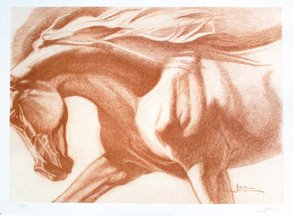What determines the valve of a mathematical expression - the variable or the constant?
If you are familiar with mathematics, you will probably know that an equation comprises five main components: the equality and operator; and the variable, the constant and the result. In several instances, there is more than one of each of these components in an equation. Nevertheless, an equation still retains its basic form – the performance of some operation on some constant(s) and variable(s) to yield some result(s). LIFE IS JUST LIKE THAT. As we go about, we accept and make inputs into our existence, apply specific processes and then obtain results.
Now, let’s take a closer look at this equation concept and how it comes in useful to our discussion on SUCCESS. Consider the following expression:
y = x + 2
Let’s start by identifying the components. The variable is x which takes on any value we choose to give it; 2 is constant and does not change unless the entire equation changes; and y is the result which takes on the value of the result of the operation performed on 2 and x.
When x is 3, 2 remains 2 and y equals 5. When x becomes 4, 2 still remains 2 and y goes up to 6. If x drops to 1, y will also come down to 3 but 2 remains unchanged. Interestingly, if + changes to X and our variable x still takes on the value of 3, the result, y will be 6 as against 5 when the operator was +.
So let me ask again, “What determines the value of an expression?” Obviously it is the variable and the operator.
The LESSON?
Simple. The magnitude of the result of any endeavour depends on how large a variable is operated upon with the constant and what operator is used. We can then conclude that if we want higher results, we need to magnify our variables and change our operators.
I understand from sound teaching and experience that God does not change, that is, He is constant. Does that then mean that He does not influence our success as much as we do? The answer is YES? If you think of what He said to Joshua then you’ll probably agree.
Joshua 1:8
This book of the law shall not depart out of thy mouth; but thou shalt meditate therein day and night, that thou mayest observe to do according to all that is written therein: for then thou shalt make thy way prosperous, and then thou shalt have good success.
So, what you get out of your life depends directly on how much of yourself is added to God!. And then who’s the operator? You, your finances, your spouse, your job, your boss, your….just name it. As long as these things decide for you, don’t expect the best.
Summary: the principal determinant of success is you, yes, YOU and YOUR OPERATOR.
If you are familiar with mathematics, you will probably know that an equation comprises five main components: the equality and operator; and the variable, the constant and the result. In several instances, there is more than one of each of these components in an equation. Nevertheless, an equation still retains its basic form – the performance of some operation on some constant(s) and variable(s) to yield some result(s). LIFE IS JUST LIKE THAT. As we go about, we accept and make inputs into our existence, apply specific processes and then obtain results.
Now, let’s take a closer look at this equation concept and how it comes in useful to our discussion on SUCCESS. Consider the following expression:
y = x + 2
Let’s start by identifying the components. The variable is x which takes on any value we choose to give it; 2 is constant and does not change unless the entire equation changes; and y is the result which takes on the value of the result of the operation performed on 2 and x.
When x is 3, 2 remains 2 and y equals 5. When x becomes 4, 2 still remains 2 and y goes up to 6. If x drops to 1, y will also come down to 3 but 2 remains unchanged. Interestingly, if + changes to X and our variable x still takes on the value of 3, the result, y will be 6 as against 5 when the operator was +.
So let me ask again, “What determines the value of an expression?” Obviously it is the variable and the operator.
The LESSON?
Simple. The magnitude of the result of any endeavour depends on how large a variable is operated upon with the constant and what operator is used. We can then conclude that if we want higher results, we need to magnify our variables and change our operators.
I understand from sound teaching and experience that God does not change, that is, He is constant. Does that then mean that He does not influence our success as much as we do? The answer is YES? If you think of what He said to Joshua then you’ll probably agree.
Joshua 1:8
This book of the law shall not depart out of thy mouth; but thou shalt meditate therein day and night, that thou mayest observe to do according to all that is written therein: for then thou shalt make thy way prosperous, and then thou shalt have good success.
So, what you get out of your life depends directly on how much of yourself is added to God!. And then who’s the operator? You, your finances, your spouse, your job, your boss, your….just name it. As long as these things decide for you, don’t expect the best.
Summary: the principal determinant of success is you, yes, YOU and YOUR OPERATOR.





